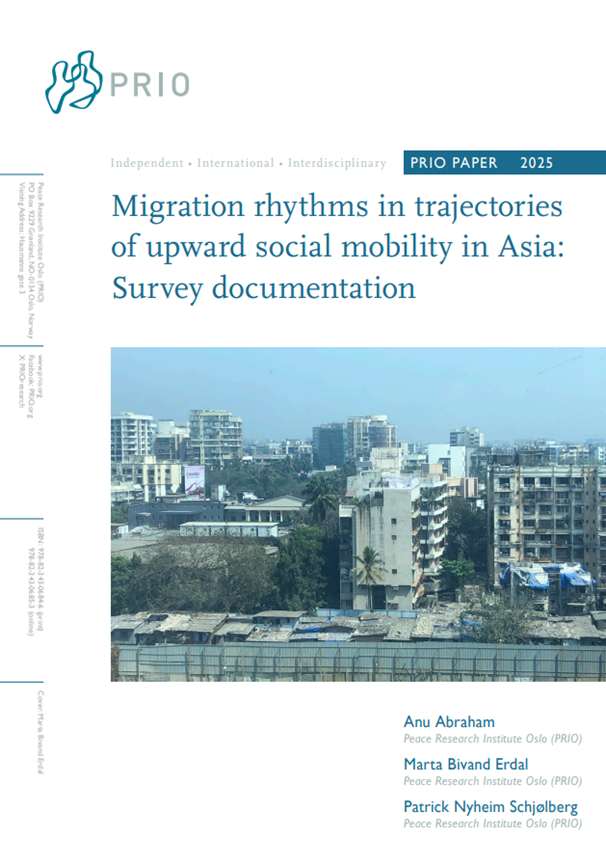
The MigrationRhythms Survey Documentation is now available as a PRIO Paper, ahead of the Open Access Dataset, which will be accessible from mid-2026 via Zenodo.
This comprehensive documentation accompanies the MigrationRhythms survey—a complex, quasi-longitudinal study focusing on middle-class respondents in four major Asian cities: Hanoi, Karachi, Manila, and Mumbai.
The survey includes both individual and household-level socioeconomic indicators for 2,000 respondents, along with a rich dataset covering over 9,000 individual household members.
Its quasi-longitudinal approach has allowed for capturing a range of spatial and socioeconomic variables for up to four generations per respondent. This offers a unique lens on intergenerational mobility and social change in and beyond these cities.
The documentation paper provides valuable guidance on:
- Novel sampling strategies
- Localization
- Usage of third-party survey software
- Management of data collection teams
- Best practices and lessons learned
The paper’s second part details the back-end data processing procedures used to streamline over 5,000 constructed variables—including skip-logic and multiple-choice formats—into a condensed, anonymized, and user-friendly open-access dataset.
By providing a clear account of both procedures and outcomes, this report serves as a resource for users of the open access dataset available on Zenodo. The survey documentation provides valuable insights for others planning on conducting survey data collection and analysis, through in-depth discussions on sampling, instrument design, rationale, as well as back-end considerations and processing principles.
Drawing on the experiences and lessons learnt from the Migration Rhythms survey might be of particular relevance and interest for researchers and students interested in designing surveys, in particular multi-sited, multilingual and/or quasi-longitudinal surveys, and surveys among urban middle classes in Asia, and beyond.





